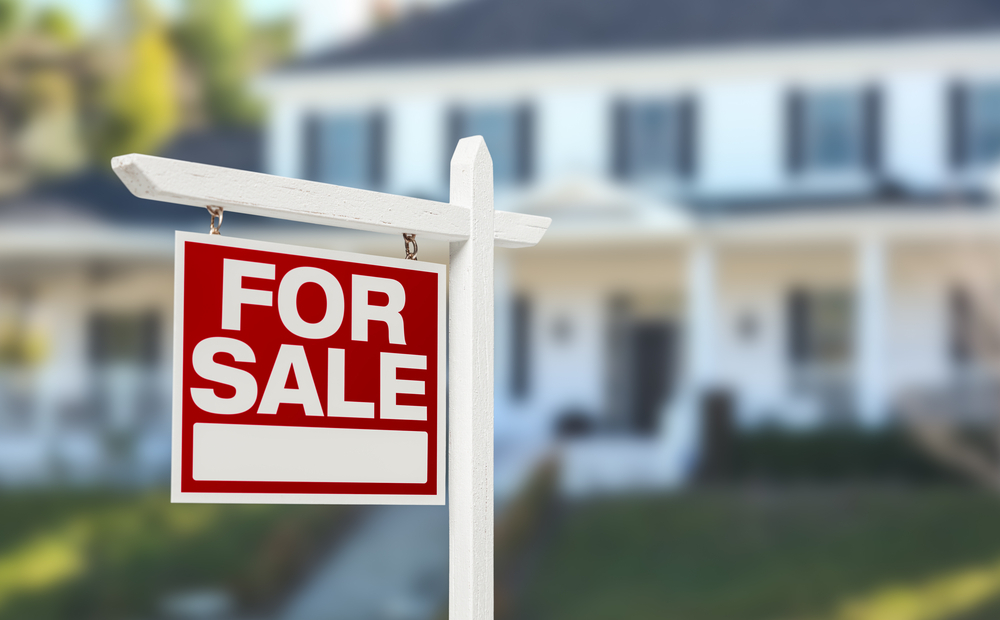How to Prepare for an Open House

To successfully sell your home, you need to attract buyers. This is why open houses are an integral part of the selling process: they allow buyers to experience the property for themselves and envision what life will look like in their new home. To prepare for an open house, you’ll need to work closely with your agent. They can advise you on what buyers in your area are looking for to increase your chances of selling your home.
How to Prepare for an Open House
The earlier you can begin prepping your home for an open house, the better, since getting it in prime showing condition will take time. Start by decluttering and organizing room by room. To truly get your home sparkling clean, you can’t miss those hard-to-reach areas like the baseboards, under your furniture, and your appliances.
To best position your home to sell, consider hiring a professional stager. A well-staged home helps it appeal to the widest possible array of potential buyers, not only for in-person showings, but in online photos as well. Professional staging is equal parts science and art. Stagers are experts in depersonalizing a home while maintaining its stylistic qualities to give buyers the opportunity to imagine the space for their own use. It isn’t just about psychology, though. Staging is a high-ROI expenditure that can add real value to your home.
It may feel counterintuitive, but your absence can be your greatest asset in making your open houses successful. Buyers will often feel uneasy in the presence of the seller as they tour, which will limit their ability to envision their own lives in the home and get excited about the prospect of ownership. Accordingly, you may need to arrange for temporary accommodations during the times your home is being shown. It’s helpful to solidify these plans several weeks in advance to avoid an eleventh-hour scramble.

Put buyers in a feel-good mood with Windermere’s “Open House” playlist on Spotify. Click the image above to listen.
Working with Your Agent
Your agent will be your greatest asset in preparing for open houses. They are experts in understanding how to effectively market your home and how the local market conditions will impact their marketing plan. Once you know it’s time to sell, they’ll analyze data to accurately price the property and keep it competitive in the current market. They’ll also work with you to schedule open houses at the times when buyers are maximally available and actively searching for listings.
Your agent will also help you to stay safe while selling your home. The reality of open houses is that you’re opening your doors to an influx of unfamiliar faces, and it’s worth it to take a few safety precautions beforehand. Perform a thorough walkthrough of your home with your agent to make sure all valuable belongings, medications, family heirlooms, and other important items have been properly secured and/or removed. Once you’ve given your home a clean sweep, discuss your process for screening potential buyers.
For more resources on preparing to sell your home, our Home Selling Guide has everything you need: selling tips, moving checklists, our Home Worth Calculator, and info on how an agent can help.
5 Small Things You Can Do to Improve Your Home Office


Amid the COVID-19 Pandemic, many of us now find ourselves working from home. While it’s hard to complain about the commute, working from home can be an adjustment. For example, you may find yourself doing tasks around the house and suddenly you’ve missed several important emails. If you feel like you need some help being more productive while working from home, here are five tips to improve your workflow.
Add Light
The best kind of light is natural light. Try setting up your workspace by a window. If that’s not possible, add a desk lamp or floor lamp to brighten your space. Not only will it help with visibility; it brightens your mood, which helps you to be more productive.
Declutter
Remove distracting clutter. Take everything off your desk that you don’t need. Store it elsewhere or use shelves on your wall to display it.
If you find yourself cleaning throughout the day, set aside time specifically for these tasks. If you’re still waking up at the same time you did when working at the office—which studies show is a great strategy when working from home—using your would-be commute time to tidy up helps avoid those periodic distractions.
Bring the Outdoors In
Bringing plants into your home is beneficial for productivity and health alike. Greenery is a natural mood booster and gives life to a room. Plants naturally purify the air, helping you breathe easy as you make your way through the workday. Try arranging both hanging and potted plants to improve the mood around your workspace.
Change Your Chair
A chair that’s too tall, too short, or not comfortable is a fast track to back and shoulder problems that inhibit your workday and linger afterwards. Being in a stationary position for hours at a time requires the right kind of support to stay productive. Features to look for in a quality office chair include proper lumbar support, sturdy wheels, and an adjustable base that allows your shoulders to relax and your feet to rest flat on the floor.
Add Decor
It’s important to keep your home office professional and dedicated to your work. However, adding personal touches to the space will help you feel at ease. Position your work computer and phone front and center with any related work tools close by and handy. Adding pictures of loved ones, artwork, and inspirational quotes will help inspire you to generate ideas while working productively.
Selling your home: A step-by-step approach


Whether you’re starting a family, moving for your job, getting ready to retire or embarking on a new chapter in your life, when your home no longer suits your current situation, it’s time to think about selling it. Although this can be a bit complicated, with the help of your agent, you can minimize the hassles, get the best possible price, and shorten the distance between “For Sale” and “Sold”.
Price it right
If you want to get the best possible price for your home and minimize the time it stays on market, you need to price it correctly from the beginning. Your agent can give you a clear picture of your particular market and can provide you with a comparative market analysis (CMA). A CMA contains detailed information on comparable homes in your area, including square footage, date built, number of bedrooms, lot size and more. It lists pending sales and houses sold in your area in the past six months, along with their actual sale prices.
By comparing your home to similar homes in your neighborhood and reviewing their list prices and actual selling prices, your agent can help you arrive at a fact-based assessment of your home’s market price.
Prepping your house for sale
You want to make a positive first impression when you list your home for sale. Here are some tips on how to enhance your home’s best features:
Work on your curb appeal
Some great things to improve your home’s curbe appeal are to get rid of moss on your roof, power wash your front walk, porch, deck and patio. Clean up the garden and mow the lawn, trim the hedges, weed the flowerbeds and add spots of color with container plants. Clean all the windows inside and out and repair them if they don’t open and close easily.
Refresh, repair and repaint
This goes for interiors and exteriors. If you see peeling paint, add a fresh coat. If it isn’t already, consider painting rooms a neutral shade of white or grey. It’s also a good idea to make necessary repairs as you don’t want to turn off a buyer with a dripping faucet, a broken doorbell, a clogged downspout or a cracked windowpane.
Deep-clean, from floor to ceiling
Clean rugs, drapes and blinds, and steam-clean carpeting. Get rid of any stains or odors. Make sure kitchen appliances, cupboards and counters are spotless and that bathrooms shine.
Declutter and depersonalize
Clean, light-filled, expansive rooms sell houses. So be sure to downsize clutter everywhere in your home, including cupboards, closets and counters. You might also consider storing some furniture or personal items to make rooms look more spacious. Take advantage of views and natural light by keeping drapes and blinds open.
Show your house
After you’ve taken care of all the repairs and cleaning tasks outlined above, your home is ready for its close-up: an open house. It’s actually best for you and your family to leave when potential buyers are present so they can ask your agent questions. But before you go, you might want to:
· Take your pets with you
· Open the shades and turn on the lights
· Light a fire in the gas fireplace
· Bake cookies or use candles and plug-in’s
· Keep money, valuables and prescription drugs out of sight
Be flexible in negotiating
If you get offers below your asking price, there are a number of strategies you can try in your counteroffer. You could ask for full price and throw in major appliances that were not originally included in the asking price, offer to pay some of the buyer’s fees, or pay for the inspection. You could also counter with a lower price and not include the appliances. If you receive multiple offers, you can simply make a full-price counter.
Your agent can suggest other strategies as well and help you negotiate the final price.
If your house doesn’t sell or you’ve received only lowball offers, ask your agent to find out what these prospective buyers are saying about your house. It might reveal something you can consider changing to make your house more appealing in the future or switch up the marketing strategy a bit to better manage expectations.
Breeze through your inspection
When a buyer makes an offer on your home, it’s usually contingent on a professional inspection. A standard inspection includes heating and cooling, interior plumbing and electrical systems; the roof, attic and visible insulation; walls, ceilings, floors, windows and doors; and the foundation, basement and visible structure. The inspector will be looking for cracks in cement walls, water stains and wood rot.
You can always opt for having an inspection done prior to putting your house on the market, so you can address any potential problems in advance. Your agent can give you several recommendations for qualified inspectors in your area.
Close with confidence
Whether this is your first time or your tenth, your agent can help guide you though the complex process of selling a home. Moreover, he or she can answer any questions you may have about legal documents, settlement costs and the status of your sale.
Your agent’s expertise, resources and extensive network also work for you when you’re buying your next house. Even if you’re moving out of the area, your agent can refer you to a professional agent in your new community.
 Facebook
Facebook
 Twitter
Twitter
 Pinterest
Pinterest
 Copy Link
Copy Link